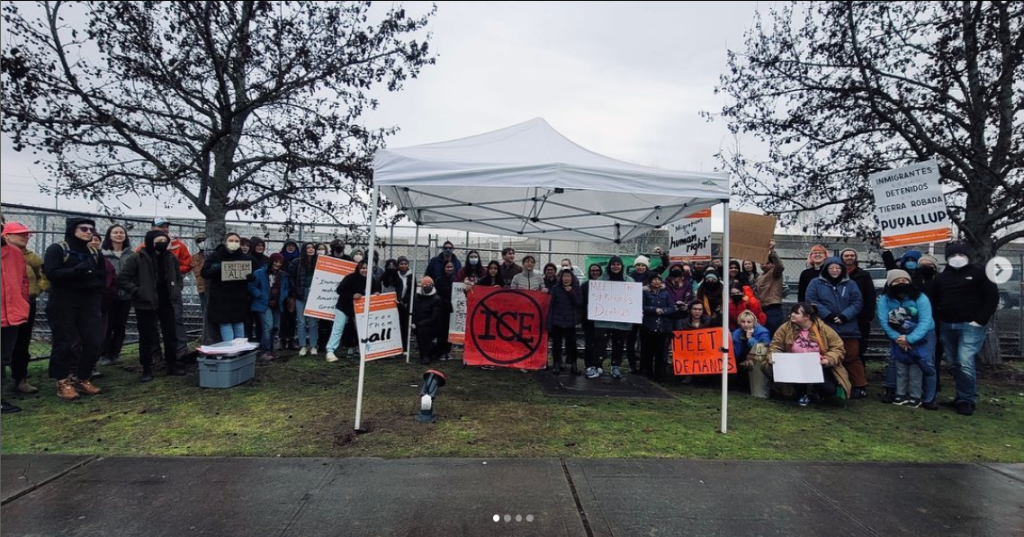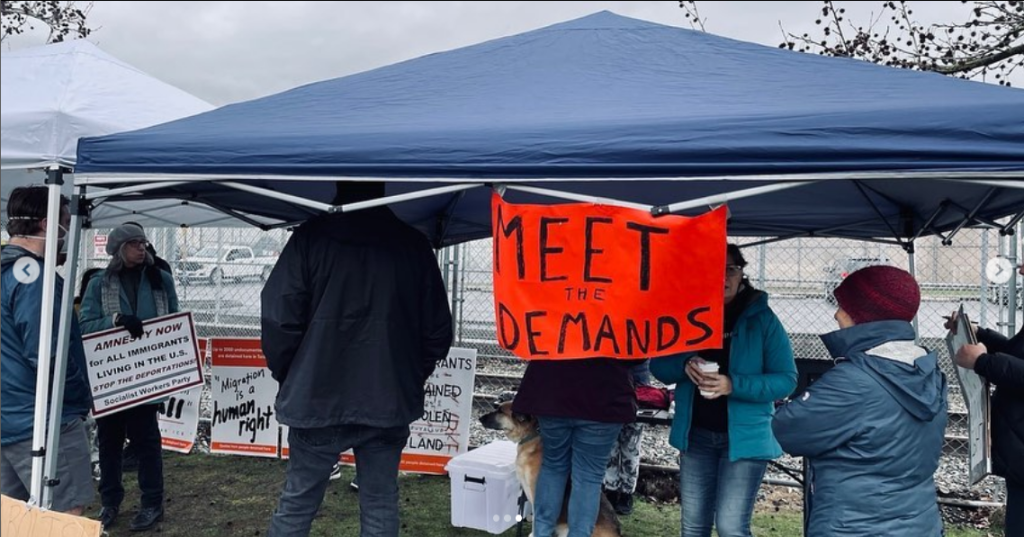Hunger strike ceases at Northwest Detention Center but living conditions still in question
Nearly 100 individuals at the Northwest Detention Center took part in a hunger strike for better treatment in early February while demands are currently being met, will this continue?
In early February, around 85 individuals detained at the Northwest Detention Center (NWDC) took part in a hunger strike in protest of living conditions at the detention center.
The NWDC is a private-run detention center owned by GEO Group and can hold up to 1,575 immigrants within its walls. Over the years, numerous hunger strikes have taken place due to mistreatment, poor living and sanitation standards, overcrowding as well as claims of sexual abuse.
Earlier this month on February 3, a report from the University of Washington’s Center for Human Rights backed some of these claims finding that “ICE repeatedly failed to invoke its contract enforcement mechanisms to force GEO to comply with basic cleanliness standards,” according to the report.
This report goes back through incidents as early as 2019 and also looks at the failings of GEO Group to protect detainees at the holding center during the beginning of the pandemic. The report includes memos from representatives of ICE who oversee their contract with GEO and found numerous occasions where GEO did not follow basic janitorial standards.
The report, while shocking, is nothing new to people who have been detained at the NWDC and have been protesting these living conditions.
Activist and advocate for grassroots organization La Resistencia, Maru Mora Villalpando, discussed ICE’s lack of holding GEO accountable and the failure ICE has shown those who are detained.
“The report proves even ICE agrees with years of protests regarding conditions, but it also shows how ICE protects GEO and they are not an agency with accountability to the public. It shows how they constantly lie to us and to congress, and the inspections done are a sham,” Villalpando said.
Shortly after the protests began, ICE confirmed that “chemical agents” were used on individuals in certain units after an inspection of items within these units.
Through La Resistencia, protesters demands included:
- Humane treatment to all.
- Resolve medical issues including dental.
- Food service be on time, serve warm food and provide utensils.
- Provide proper clothing, shoe wear, linens, and clean laundry. Change mattresses and chairs. There are not enough.
- Lower telecommunications price. Provide service that works: No more dropped calls, counted as used, not credited.
- End unnecessary detention, incarceration, overdue or ignored processes.
- End the excessive punishment, administrative segregation for minor and augmented justifications.
- Grievance process must change. Grievances are ignored, oscillated tactics are used, misleading and authored responses such as “unfounded.”
- Recreational area must be fixed. There are potholes, black mold, which make us prone to injuries. T.V. is on low volume and turned off early.
- Access to the barbershop. We demand haircuts more than once a month.
- Clean water to shower.
- Allow stress relievers through arts and crafts such as art, origami, color pencils, etc.
- Shorten count time. Right now, the count time takes from an hour to an hour and a half.
- Access to toiletries in units such as razors, paper towels, soap, etc.
- Clean air supply

Protestors and supporters of La Resistencia and those detained gathered in support of those on strike outside of the detention center with daily updates on La Resistencia’s Instagram and Twitter. The protests ceased on Sunday February 5, after ICE said they would meet the demands of the protestors.
“It seems that at least two units desired better food, one unit told us they got 100% better portions, better food, new towels, some people finally went to see the doctor and one will get a referral to the dentist. The rest of the units report they got 3 menus to vote on from Captain Portillo. They are expecting the rest of the promises to be permanent and extended to all units,” Villalpando said.
According to Villalpando, ICE officers Sylvie Renda and Kathlyn Lawrence promised that detainees would receive new shoes, access to clean water and medical care and referrals to the dentist and would make sure units are in quarantine during COVID-19 outbreaks and receive visits from family members.
So far, conditions appear to have improved but the release of the University of Washington’s report does leave individuals concerned.
A solidarity day with UW students and La Resistencia is scheduled for later this month on February 25, 1-3 p.m. at the detention center. This event was organized by a group of students over at UW Seattle who are a part of the Human Rights in Latin America practicum.
“The mission of solidarity day is to let ICE and the GEO group know that we are watching. We are aware of the conditions inside their facility and are not going to sit quietly while they terrorize these detainees,” said Nicole Coker, a student organizer.
For those who wish to help those detained, individuals can call or email members of the Human Service Committee here in Washington and ask them to support Bill HB1470.
HB1470 is a bill focused on addressing living conditions and adequate care in private detention facilities such as the NWDC owned by GEO Group. This bill would require these private facilities to provide basic human care such as: nutritious food, clean clothes, hygiene products, timely medical care, ban solitary confinement and more according to La Resistencia group members.
For more information, you can follow La Resistencia on Instagram @Laresistencianw and Twitter @Resistencianw



